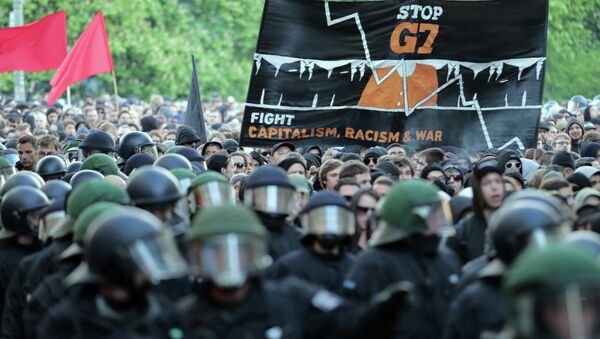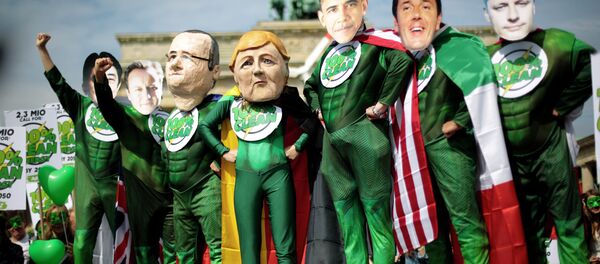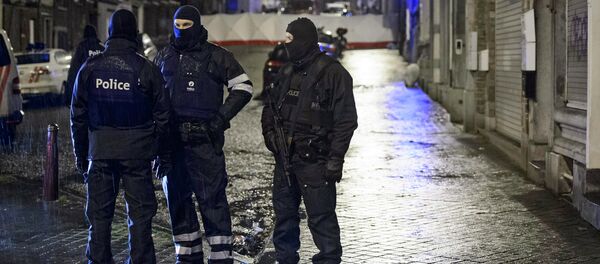On Tuesday, local authorities said they would not allow protesters to carry on the plan, explaining that torrential rains in the coming days may cause the river nearby to overflow.
"It is a political decision. It is unfortunate that we seem to always need a court’s decision to authorize this kind of events," said Reinter Braun, the spokesman at the Cooperation for Freedom, part of the Stop G7 alliance.
#StopG7 protests: Crossroad blocked! (Pic @block_g7_ticker) pic.twitter.com/XHdiQjH0BO
— Global Resistance (@FibsFreitag) 14 апреля 2015
Braun told journalists they would bring 4,000-4,500 protesters to the camp.
On Monday, the German Interior Ministry reintroduced border controls with Austria and the Czech Republic, part of the normally travel-free Schengen zone.
Bavarian authorities on Tuesday shut down all access roads to the G7 venue – the Elmau Castle luxury hotel — and constructed a 10-mile-long fence around the site. Up to 20,000 police officers will be stationed in surrounding towns during the summit.
According to police sources cited in local media, the moves were designed to avoid a repeat of anti-capitalist protests that occurred during a previous G7 foreign minister meeting in mid-April. In that instance, Luebeck police detained 16 protesters for attempting to break through the encircling security ring.
A week of demonstrations will start with a June 3-4 "alternative summit" in the Bavarian capital Munich, a 20-thousand strong protest against the controversial TTIP free-trade deal between Brussels and Washington on June 4, and end in a massive rally close to the Elmau hotel on the final day of the summit.





